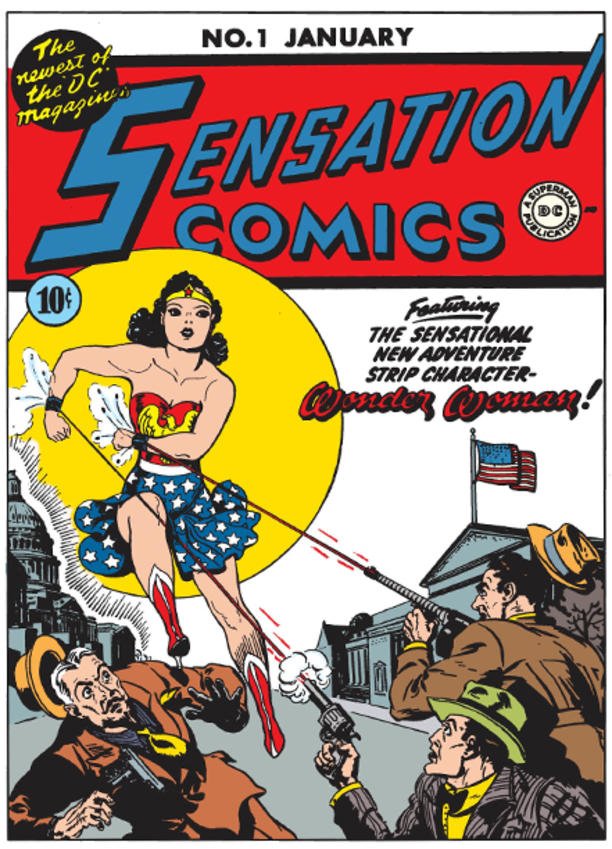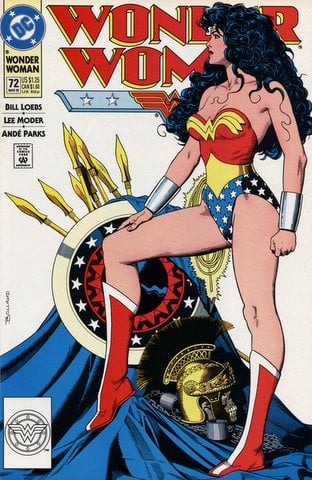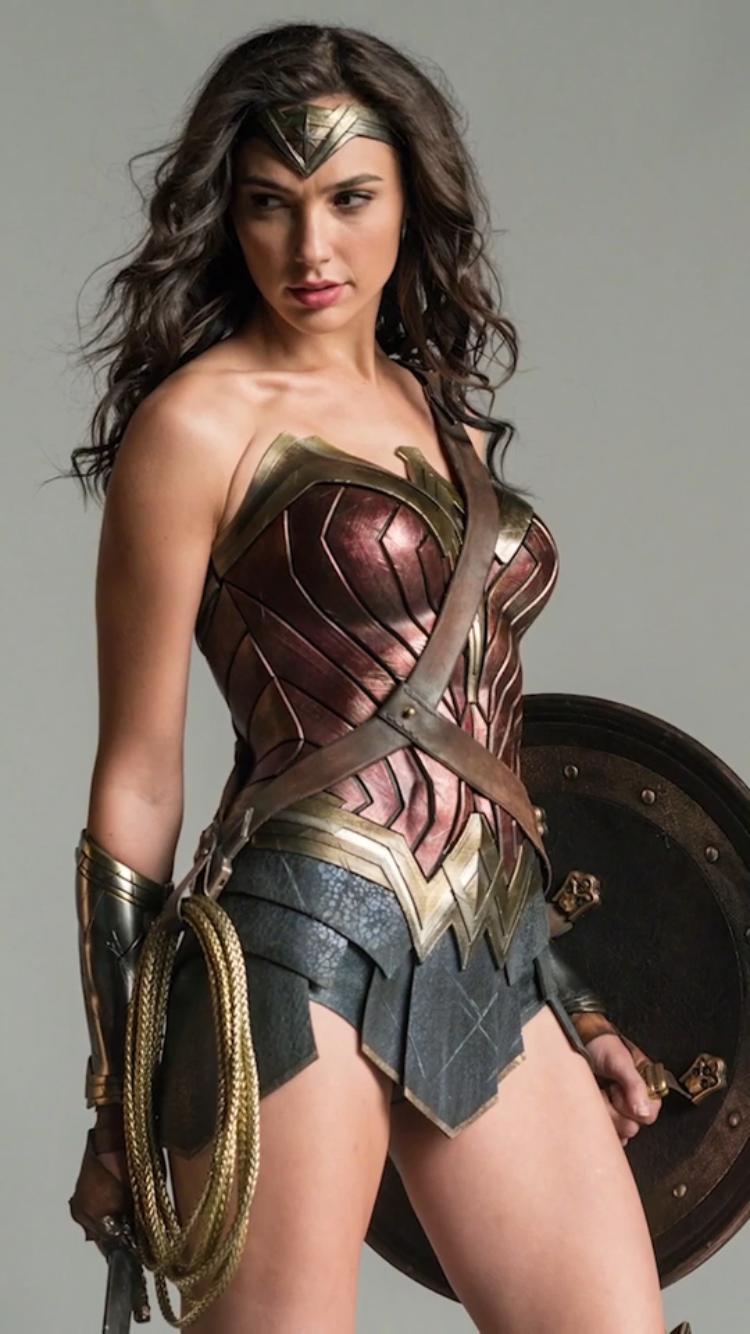 ‘Entertainment Weekly”s newest issue is a superhero bonanza with Benedict Cumberbatch as Doctor Strange on the cover to herald the release of his movie. But also included is a list of the 50 Most Powerful Superheroes. This isn’t based on actual strength or powers. It’s based on cultural impact and their pick for #1 was Wonder Woman.
‘Entertainment Weekly”s newest issue is a superhero bonanza with Benedict Cumberbatch as Doctor Strange on the cover to herald the release of his movie. But also included is a list of the 50 Most Powerful Superheroes. This isn’t based on actual strength or powers. It’s based on cultural impact and their pick for #1 was Wonder Woman.
 That may be shocking (or even just wrong) to some but I agree. Hear me out.
That may be shocking (or even just wrong) to some but I agree. Hear me out.
For decades, Marvel Comics have outsold DC’s. Readers found the flawed Marvel cast more realistic. And these days, the Marvel movies are the hottest thing in cineplexes– certified crowd-pleasers and a seemingly unstoppable force. Meanwhile, the DC movies have met with controversy and largely mediocre-to-negative reaction from critics and fans.
But as popular as the Marvel characters are at the movies, they’re just that: characters. I could even say that about Batman, who is arguably the most popular superhero of all, because… well, he’s not super. His lack of powers make him easier to relate to.
Batman may be cooler and more popular, but he doesn’t STAND for anything.
On the flip side, even though they may not be as technically popular, Wonder Woman and Superman are more than just comic book characters; they’re symbols. Think about all the guys you see with Superman’s S shield tattooed on their muscular arms or on the back windshield of their vehicles. You think those are actual comic book readers? No, but Superman is more than a character. He’s a symbol of masculinity and strength.
 And in the same way, Wonder Woman is a symbol. Like him, she represents strength and kick-ass-itude, but she also embodies beauty, grace and compassion.
And in the same way, Wonder Woman is a symbol. Like him, she represents strength and kick-ass-itude, but she also embodies beauty, grace and compassion.
Just like men with the S shield, you see just as many women with WW tee shirts or sipping from WW coffee mugs. Once again, are these comic book readers? Most are not. But they connect to what she means to them, whether its empowerment, independence, toughness, love, kindness… or maybe they just think she’s pretty. That’s the thing with symbols; they’re open to interpretation.
When he created her, psychiatrist William Moulton Marston wanted her to be the antithesis of the violent male heroes in comics. Marston was a controversial figure who believed in female superiority– that women should govern because they could balance intelligence and passion with compassion and empathy. In Wonder Woman’s early comic books, she placed an emphasis on nonviolent solutions and attempting to reform her foes and teach them the error of their ways.
To that end, she was not armed with a sword or gun, but an unbreakable Golden Lasso to simply subdue her foes. Marston invented the polygraph lie detector and Wonder Woman’s lasso forced anyone bound with it to tell the truth. (Of course nowadays, she uses a damn sword more than she does the lasso, but I blame that on creators that don’t truly “get” her.)
Though Wonder Woman was a popular comic book character, comic readers make up a tiny segment of the population.
What really made her an immortal icon was the 1970s TV series that featured a perfectly-cast Lynda Carter in the title role. This Wonder Woman had nearly universal appeal and was one of the most iconic TV stars of the decade.
Kids of course loved her because she was a super hero.
Men loved her, because… well just LOOK at her.
Women loved her because even though she was remarkably beautiful, Carter’s Wonder Woman was also warm and approachable. And of course she kicked ass and proved that women could be just as effective physically as men.
And the gays? All of the above. (And that sparkly costume designed by Donfeld didn’t hurt.)
 Next year sees the release of the highly anticipated ‘Wonder Woman’ movie directed by Patty Jenkins and starring Gal Gadot. Gadot has already impressed, stealing every scene she was in in ‘Batman V Superman: Dawn of Justice’.
Next year sees the release of the highly anticipated ‘Wonder Woman’ movie directed by Patty Jenkins and starring Gal Gadot. Gadot has already impressed, stealing every scene she was in in ‘Batman V Superman: Dawn of Justice’.
Think about it: Lynda Carter’s Wonder Woman is still revered to this day and it left the airwaves in 1979. (Of course it was syndicated afterward, but still…) If Carter’s take on the Amazing Amazon still resonates, it’s entirely possible that Gadot’s will likewise continue to inspire 40 years from now.
The United Nations is declaring October 21st, Wonder Woman Day and is making her an ambassador for gender equality. The organization lists numerous statistics of the mistreatment of females in various parts of the world, including in the areas of education, salaries, as well as in far more chilling areas like human trafficking, genital mutilation and forced child marriage, just to name a few.
It is hoped that just as she has inspired countless people in America and other First World nations, that she will be able to do the same for those in more underdeveloped parts of the world.
Sure, the UN could have gotten a female Hollywood star. But somehow that wouldn’t be the same. As smart or talented or even beautiful as a star may be, they’re only human.
Wonder Woman is so much more.
